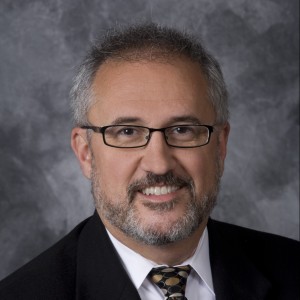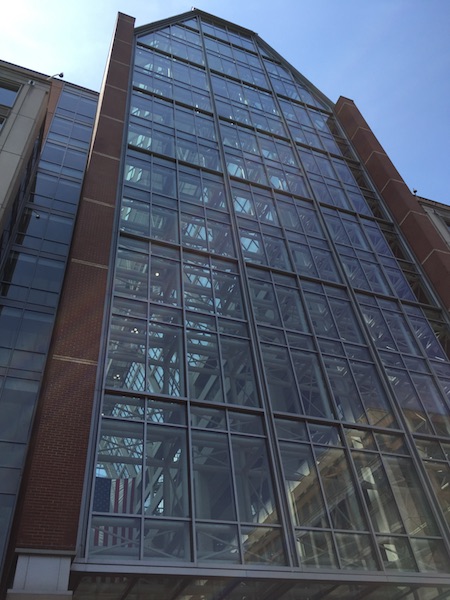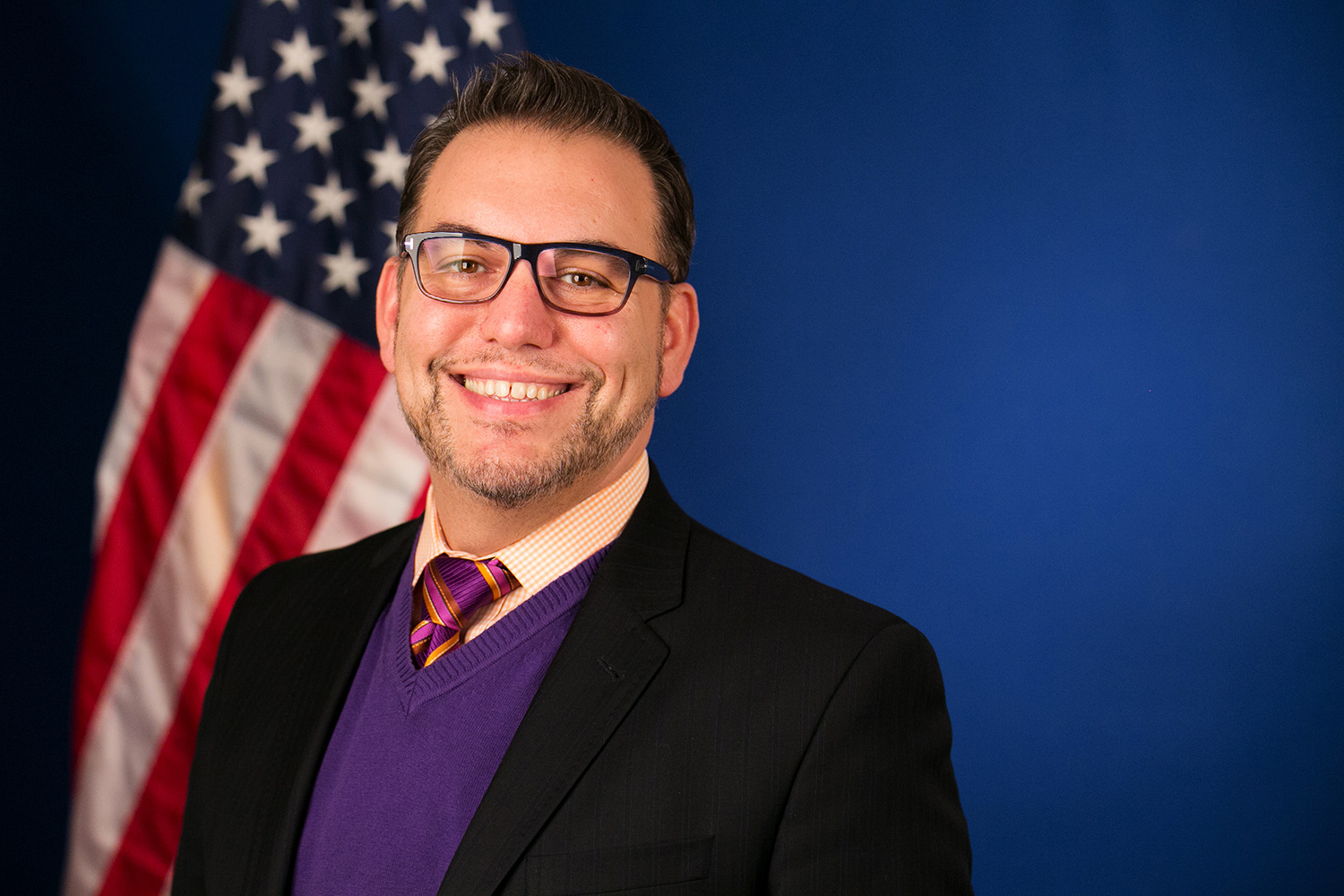Predictions and Musings on 2018
 Each year, I ask a panel of industry experts to make predictions for the upcoming year, and to identify particular news, stories or events they will be watching with interest. See Predictions for 2018 and Topics to Watch in 2018.
Each year, I ask a panel of industry experts to make predictions for the upcoming year, and to identify particular news, stories or events they will be watching with interest. See Predictions for 2018 and Topics to Watch in 2018.
Given that several industry insiders were willing to make their own predictions, it seems only fair for me to likewise go out on a limb and make my own predictions.
First, I predict that the United States Supreme Court will find post grant procedures under the America Invents Act to be unconstitutional. It is my belief they took Oil States not as a patent case, but rather as an Administrative State case, and if that is correct, this could be the first in a series of decisions over a number of years that will pull authority back from the growing Administrative State and toward the Judiciary.
PTAB denies claims of 11th Amendment sovereign immunity
 Several weeks ago, the Patent Trial and Appeal Board (PTAB) of the United States Patent and Trademark Office (USPTO) denied a motion filed by the University of Minnesota in a series of inter partes review (IPR) cases. See Order Denying Patent Owner’s Motion to Dismiss. This extraordinary denial of the motion is newsworthy because Minnesota sought a dismissal of the IPRs based on Eleventh Amendment sovereign immunity. The PTAB previously dismissed similar IPRs against state-owned patents. Here, however, the PTAB in a majority opinion authored by Chief Judge David Ruschke (pictured left), disagreed and refused to dismiss the IPRs.
Several weeks ago, the Patent Trial and Appeal Board (PTAB) of the United States Patent and Trademark Office (USPTO) denied a motion filed by the University of Minnesota in a series of inter partes review (IPR) cases. See Order Denying Patent Owner’s Motion to Dismiss. This extraordinary denial of the motion is newsworthy because Minnesota sought a dismissal of the IPRs based on Eleventh Amendment sovereign immunity. The PTAB previously dismissed similar IPRs against state-owned patents. Here, however, the PTAB in a majority opinion authored by Chief Judge David Ruschke (pictured left), disagreed and refused to dismiss the IPRs.
The PTAB ruled that the University of Minnesota “waived its Eleventh Amendment immunity by filing an action in federal court alleging infringement of the patent being challenged in this proceeding.”
01.11.18 | Inter Partes Review, Patent Issues, USPTO | Gene Quinn
Andrei Iancu unanimously approved by Senate Judiciary Committee
 On Thursday, December 14, 2017, President Trump’s nominee to become the new Under Secretary of Commerce for Intellectual Property and the Director of the United States Patent and Trademark Office was unanimously approved by the Senate Judiciary Committee.
On Thursday, December 14, 2017, President Trump’s nominee to become the new Under Secretary of Commerce for Intellectual Property and the Director of the United States Patent and Trademark Office was unanimously approved by the Senate Judiciary Committee.
“Mr. Iancu has a proven record in the field of intellectual property law,” Senator Chuck Grassley (R-IA) said moments before the vote. “He has an excellent academic and professional background in intellectual property law. He’s extremely knowledgeable about the patent system. He’s well respected in the legal community.”
“We congratulate Mr. Iancu on his support from the U.S. Senate Judiciary Committee to be Director of the U.S. Patent and Trademark Office,” said Innovation Alliance Executive Director Brian Pomper. “We believe he will heed the views of independent inventors, entrepreneurs, and various industry groups—all those that form our U.S. innovation ecosystem.” Pomper would go on to urge the full Senate to approve the Iancu nomination as soon as possible. “We look forward to working with Mr. Iancu in creating a strong and stable U.S. intellectual property landscape for entities of all sizes, enabling the U.S. to reassert its position as an international leader in innovation,” Pomper said. (more…)
12.19.17 | Congress, USPTO | Gene Quinn
House Budget Committee recommends USPTO be independent agency
 The House Budget Committee recently released a non-binding budget blueprint titled Building a Better America: A Plan for Fiscal Responsibility. As a part of this proposed fiscal year 2018 budget, the House Budget Committee is proposing that the United States Patent and Trademark Office (USPTO) be made an independent agency.
The House Budget Committee recently released a non-binding budget blueprint titled Building a Better America: A Plan for Fiscal Responsibility. As a part of this proposed fiscal year 2018 budget, the House Budget Committee is proposing that the United States Patent and Trademark Office (USPTO) be made an independent agency.
On page 50 of the House budget proposal, under a heading discussing the elimination of overlapping Department of Commerce functions and consolidating necessary Department of Commerce functions into other Departments, the proposal includes the line item: “Establish the U.S. Patent and Trademark Office as an independent agency.” No further information is provided relating how that might be accomplished. The budget proposal does say, however, that the Commerce Department and its various agencies “are rife with waste, abuse, and duplication,” which is why House Republicans are recommending a different approach for the federal government supporting commerce moving forward.
11.21.17 | Patent Issues, USPTO | Gene Quinn
PTO Update from John Cabeca, Silicon Valley Director
 Last week John Cabeca (left), Director of the Silicon Valley branch of the United States Patent and Trademark Office, delivered the Keynote Speech at the 2017 Annual Meeting of the Association of Intellectual Property Firms (AIPF) in San Francisco, California. What follows are several of the more interesting points Cabeca make during his 30-minute presentation.
Last week John Cabeca (left), Director of the Silicon Valley branch of the United States Patent and Trademark Office, delivered the Keynote Speech at the 2017 Annual Meeting of the Association of Intellectual Property Firms (AIPF) in San Francisco, California. What follows are several of the more interesting points Cabeca make during his 30-minute presentation.
“Typically it takes three months plus or minus a month, depending upon what Congress has on their schedule, but we look forward to having Mr. Iancu on board,” said Cabeca, when addressing the most common question he gets of late – when can we expect the new Director to be confirmed and in place.
Cabeca’s assessment on the Iancu timeframe is in keeping with everything I’ve been hearing. President Trump nominated Andrei Iancu to be the next Director of the USPTO on August 25, 2017. Perhaps Iancu will manage to find himself a part of some late-year nominee deal in the Senate, perhaps he will be held over for confirmation until early 2018. (more…)
09.22.17 | Patent Issues, posts, USPTO | Gene Quinn


No Comments
01.16.18 | Patent Issues | Gene Quinn